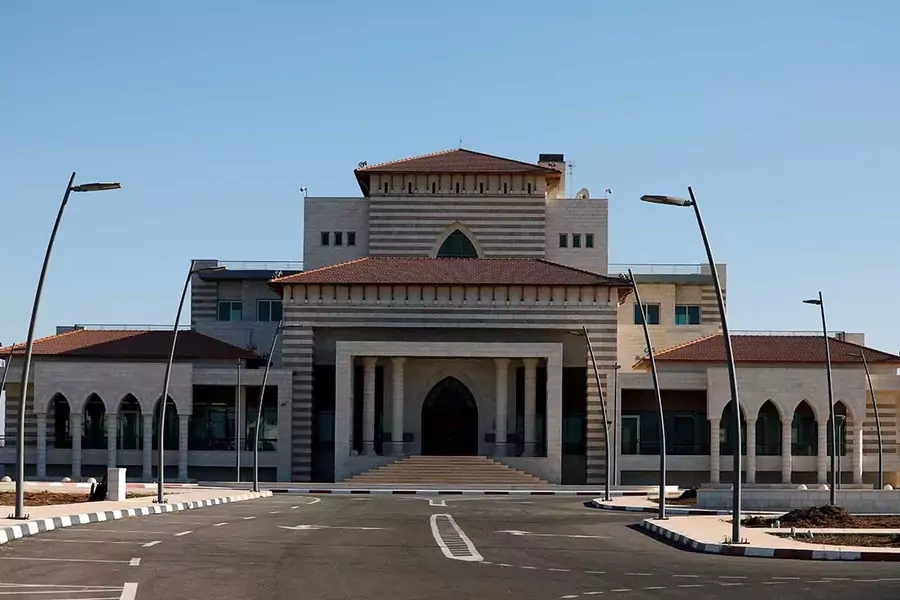Corruption in the Palestinian Authority

Civil Society does exist in the Palestinian territories, and one of the strongest organizations is the one that fights corruption: The Coalition for Accountability and Integrity. It was established in 2000 and is linked to Transparency International.
Its tenth annual report is out, covering 2017 and entitled “Integrity and Combating Corruption.”
More on:
Needless to say, no government is entirely without corruption and the Palestinian Authority suffers from unique disadvantages: it is not a state, it does not have control over the territory it supposedly governs (the Israeli military is the ultimate authority in the West Bank), it must deal with Hamas in Gaza, and so on.
Nevertheless the findings show disappointment with the situation, and here are some examples.
The rule of law is weak both because the parliament never meets to pass laws and due to executive interference: “the judiciary and the prosecution in the West Bank and Gaza Strip continue to lack independence.”
Government jobs, which are prized due to the weak private economy, are awarded on the basis of cronyism rather than merit: “Appointments at higher posts continued without transparency or fair competition, in disregard for the principle of equal opportunity. No job announcements were published in the newspapers, nor were there any competitions over appointments.”
While there is a high import duty on automobiles, it is often escaped by big shots: “non-payment of customs and taxes for purchase of private vehicles…is a waste of public funds…. Influential persons in senior positions were granted tax and customs exemptions without legal basis for approval. The amount of wasted funds is enormous, as the investigative report documented eight cases concerning influential officials where the amount wasted reached 357,600 dollars, which should have gone to the public treasury.”
More on:
The security services continue to be bloated at the top, as under Arafat: “the total annual amount for salaries…for the ranks of Major General, brigadier General, Colonel, and Lieutenant colonel, in 2016, reached the amount of 238.7 million NIS per year, equivalent to the yearly salary of 13000 soldiers. Although the total number of the officers of the ranks mentioned is 5672. This translates into: for each officer assigned to lieutenant colonel or above there are two soldiers, despite the fact that the global experience shows differently. For example, in Israel, the ratio is 9 soldiers to one officer, and in the U.S. it is 5 to one.”
Moneys are spent on non-existent entities, and here’s the best example: “salaries and raises were paid to employees of an airline company that no longer exists on the ground.” That is Palestine Airlines, about which the report says this: “The Palestinian treasury paid salaries to hundreds of employees in the ‘Palestinian Airlines’, which is a governmental company that has a board of directors, headed by the Minister of Transportation. This ‘company’ is not registered as a company in accordance with the law, nor does it have a governing law of its own, although the decree by which it was established goes back to 1994….The budget for this ‘company’ is included in the budget of the Ministry of Transport and Transportation with no details.” A non-existent airline—whose employees were not only paid salaries but given raises.
Finally, there is the case of the Presidential Palace (pictured above). This giant edifice—50,000 square feet for the Palace itself plus another 40,000 in other buildings—cost the bankrupt Palestinian Authority $17.5 million. The public uproar forced President Mahmoud Abbas to convert the edifice into a public library. As the report states, “Honorable as it may sound to convert the presidential palace into a public library, it remains to be the epitome of misuse of public funds as well as a bad example of lack of prioritization.”
The report also covers Gaza, where there is plenty of Hamas corruption (though opinion polls included in the text suggest that corruption is perceived to be lower by residents of Gaza than by those in the West Bank).
The report is a tribute to the Coalition for Accountability and Integrity, because the text is long and detailed. Its very existence is a reminder that Palestinian civil society remains strong and continues to struggle with the political parties, movements, and leaders that dominate political life-- and have so often been a curse to Palestinians.
 Online Store
Online Store